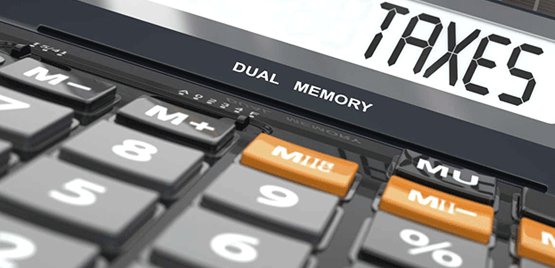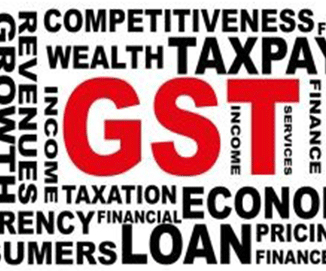Tax
Managing finances is extremely important to keep a business in succession. We guarantee to elevate this resource to your benefit and help you obtain attainable value returns.
Our proactive approach to tax services helps us identify key tax planning opportunities that keep your current and future tax liabilities to a minimum. We provide our individual and business clients with the taxation expertise and knowledge that they deserve throughout the year.
Our team is committed to help you throughout the route and cut costs to leverage your returns. We make sure that your business stays compliant with tax regulations. Our taxation service is a promising solution to all tax matters facing your company.
We can help you in the following areas:


Corporate Tax Return
Need help with your company’s corporate tax return? We are here to help! We are up to date on all the tax laws and regulations. This helps us to deliver the best solutions for your business – at a reasonable rate. Our goal is to help your company minimize its taxes, so that you can use the money to grow your business.

Personal Tax Return
Keeping your personal finances in order is not an easy task. However, we make it easy and simple for you!
We assure you that you get the best income tax return that you are entitled to. Our aim has always been to simplify your return, relieve you from the burden, and help you minimize your taxes.
From completing the important documentation and estimating your tax liability/refund, to verifying all the information with you before the final submission to the CRA, we take every step seriously and leave you with a peace of mind.

Estate And Trust Tax Returns
You may find yourself in the role of a trustee or an executor of an estate with little experience or during a stressful life event, like the death of your nearest one. It seems daunting to understand what tax filings are and how all this can impact the beneficiaries. Unfortunately, it is! However, you do not need to worry; we are here to make you understand the entire process and/or empower you to handle the affairs of the estate or trust.
Commonly Asked Tax Questions and Answers
Personal Taxes
What is the filing deadline?
The filing deadline of a given taxation year’s personal tax return is normally April 30 in the following year.
If you are self-employed, you have until June 15 in the following year to file your tax return. However, you need to be mindful of a key requirement: if you have taxes owing, you are required to pay the balance by April 30. Otherwise, the CRA will charge interest. Therefore, I suggest that you file by April 30 to be safe.
If you are absolutely certain that you do not owe any taxes, then you can file at any time.
I am an employee and what expenses can be deducted against my income?
For any employee, there is a limited number of items that you may deduct against your income. The best and most common deduction is your Registered Retirement Savings Plan (“RRSP”) contribution.
Depending on the nature of your employment, you may be allowed to claim certain employment expenses, but your employer must issue you a T2200 slip (Declaration of Conditions of Employment).
I am self-employed and what expenses can be deducted against my business income?
Generally, all expenses directly related to your business (e.g., advertising, cost of goods purchased for sale, etc.) can be deducted.
In addition, if you use your personal items for your business, such as phone, car, and home, you may also claim a portion of these expenses. However, you may need to keep a log to track usage to support the amount claimed.
When is the deadline to contribute to an RRSP in order to claim it against the previous calendar year’s income?
In order to be eligible to deduct against your previous calendar year’s income, the deadline to make an RRSP contribution is March 1 of the current year (or February 29 in the case of a leap year). To make it easier to remember, just keep in mind the deadline is the end of February of the current year.
You can find your RRSP contribution room in your previous tax year’s Notice of Assessment. You should avoid over-contributing into your RRSP as any over-contribution above $2,000 is subject to interest.
What should you do if you discover an error after filing your tax return?
You may file a T1 Adjustment Request, along with the supporting documentations, for up to 10 years.
Do I need to report foreign investments?
If your total foreign investments are over $100,000 CDN at cost at any time in the tax year, you must report them to the CRA by completing form T1135. The investments could be in the form of a foreign bank account, rental property, stocks, etc. However, you do not need to report foreign personal-use property.
Failure to report your foreign investments will result in a penalty of $500 per month for up to 24 months (a maximum of $12,000). Further penalties apply after the 24-month period.
Do I need to report foreign income?
All residents of Canada for tax purpose are required to report their worldwide income, regardless of the place earned. However, you may receive a credit for any foreign taxes paid.
Should I file my tax return even if I do not have income?
Yes, if you are at least 18 years of age in the tax year, you should file a tax return, regardless of whether you have income.
Filing a tax return will benefit you or your family in several ways:
a.You may apply for the GST/HST credit;
b.You may apply for the Ontario Trillium Benefit;
c.You or your spouse plan to apply for or want to continue to receive the Canada Child Benefit;
d.You have unused donation, tuition, education, and textbook amounts that you wish to carry forward.
I am a university/college student. Should I file my tax return?
Yes, due to the potential benefits outlined in point 8 above.
If you paid rent while attending university/college, you should report the total rent paid in the tax year, since you may receive a higher Ontario Trillium Benefit.
Do not forget to report the tuition fee on your T2202A slip, which is issued by your university/college. Reporting this slip will help you claim the tuition, education and textbook amounts, which will help reducing your taxes.
If the CRA sends me a request for information, what should I do?
Do not panic. It is normal for the CRA to send a request for information. The request will state specifically what the CRA is looking for. Simply provide the requested information and you will be fine. If you are not sure as to how to handle the request, feel free to contact me for assistance.
What are the personal tax rates in 2019?
The Canadian tax system is a progressive one. Meaning, the higher your income, the more taxes you are required to pay on the top portion of your income.
For the year 2019, I have summarized the federal and Ontario tax rates below:
Federal
| Taxable income | Tax Rate |
| First $47,630 | 15.0% |
| Between $47,630.01 and $95,259 | 20.5% |
| Between $95,259.01 and $147,667 | 26.0% |
| Between $147,667.01 and $210,371 | 29.0% |
| Above $210,371 | 33.0% |
Ontario
| Taxable income | Tax Rate |
| First $43,906 | 5.05% |
| Between $43,906.01 and $87,813 | 9.15% |
| Between $87,813.01 and $150,000 | 11.16% |
| Between $150,000.01 and $220,000 | 12.16% |
| Above $220,000 | 13.16% |
Corporate Taxes
I am (or will be) running an unincorporated business. Should I incorporate or not?
There are two major advantages to incorporating a business:
a.Limited liability. If you incorporate a company, you and your corporation are considered to be separate legal entities. In the case that someone sues your corporation, you will not be personally liable for any resulting liability. Meaning, you will be able to protect your personal assets.
b.Tax deferral. If you do not incorporate your business, the net income generated therefrom is taxable in your personal tax return in the year earned. The tax you have to pay on it depends on the tax bracket you are in. However, if you incorporate and assuming that your company qualifies for the small business deduction, the tax rate is only 13.5% (on the first $500,000 of taxable income). This tax rate is actually lower than the personal tax rates. You may leave the money in the corporation until you need it. Therefore, you are deferring taxes.
How to choose the year-end for my corporation?
The year-end of your corporation can be any date during the year. Once you have chosen the year-end date, do not change it unless there are special reasons to do so.
Many people choose December 31 for convenience purpose, which is fine, but do not feel that your company’s fiscal year-end must coincide with the calendar year-end.
One factor to consider when choosing the year-end date is how to achieve tax deferral on your personal tax.
If your company is profitable, it may declare a bonus to you. The CRA stipulates that all bonuses need to be paid within 179 days of the year-end of your company. Therefore, if you choose the year-end to be any date between July 6 and December 31 and dictate your company to pay the bonus 179 days after the year-end, the payment falls into your personal income in the following year. Hence, you have deferred paying personal taxes on the bonus.
E.g., if your company has a year-end on August 31, 2018 and the bonus is paid to you on January 31, 2019, the bonus is your 2019 income, not 2018. Therefore, the goal of tax deferral is achieved.
When does my corporation need to file the corporate tax return?
For any private corporation, the due date to file the corporate tax return is six months after the year-end. However, you need to be mindful of a key requirement: if your corporation is a Canadian-controlled private corporation (“CCPC”) and has corporate taxes owing, the tax payment is due three months after the year-end. Otherwise, the CRA will charge interest. Therefore, I suggest that you file within three months of the year-end to be safe.
For private corporations not controlled by a Canadian, the corporate tax payment is due two months after the year-end. Otherwise, the CRA will charge interest. Therefore, I suggest that you file within two months of the year-end to be safe.
If in the course of conducting business, my company uses my personal items (e.g., phone, car, etc.), can it claim those expenses?
Yes, your company may claim a reasonable portion of the expenses. You may need to use a log to track the business use of the personal items in order to support the level of reasonableness.
If my company is profitable, should it pay me a salary or a dividend?
Both salary and dividend each have advantages and disadvantages.
Salary (or bonus):
Advantages
a.Both your corporation and you will be contributing to your Canada Pension Plan (“CPP”), which means you will receive a higher CPP payment when you retire in the future.
b.The salary is an expense to the corporation, which reduces its taxable income, leading to lower corporate taxes.
Disadvantages
a.The salary is 100% taxable as your personal income without any offsetting tax credit.
b.The CPP contribution increases the cost of conducting business.
Dividend:
Advantages
a.A dividend is taxed at a lower rate than salary for personal tax purpose.
b.Your corporation and you will not be contributing to the CPP, which reduces the pressure on the current cash flow.
Disadvantages
a.A dividend is not considered to be your earned income for personal tax purpose. As such, it will not increase your RRSP contribution room.
b.You will receive less CPP payments when you retire because of lower contribution.
The best answer to the question: it depends on your situation!
What are the corporate tax rates in 2019?
For the year 2019, I have summarized the federal and Ontario corporate tax rates below:
| Actual Business Income | Investment Income for CCPC | |||
| General
|
With Small Business Deduction | Business Limit | ||
| Federal | 15.0% | 9.0% | $500,000 | 38.67% |
| Ontario | 11.5% | 3.5% | $500,000 | 11.50% |
| Total | 26.5% | 12.5% | 50.17% | |
